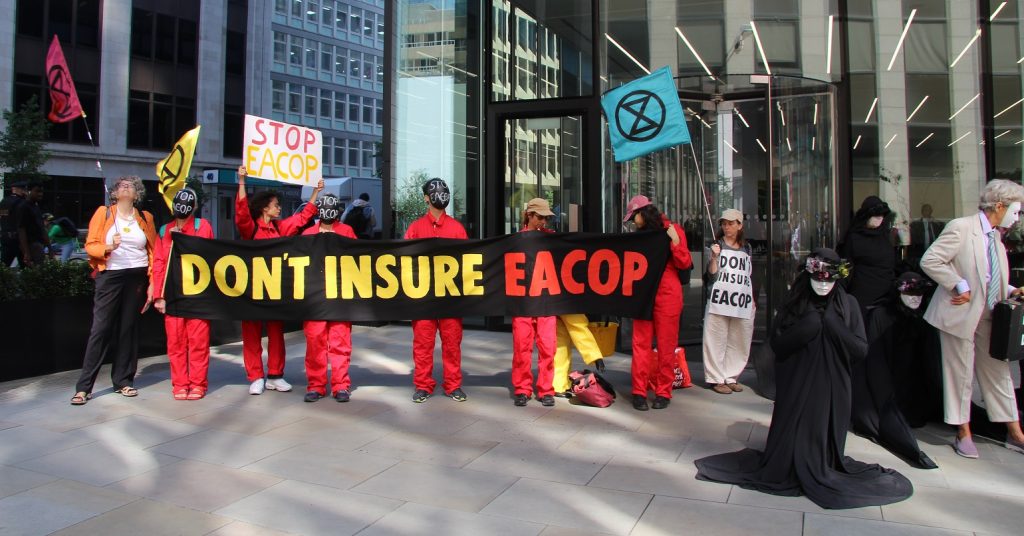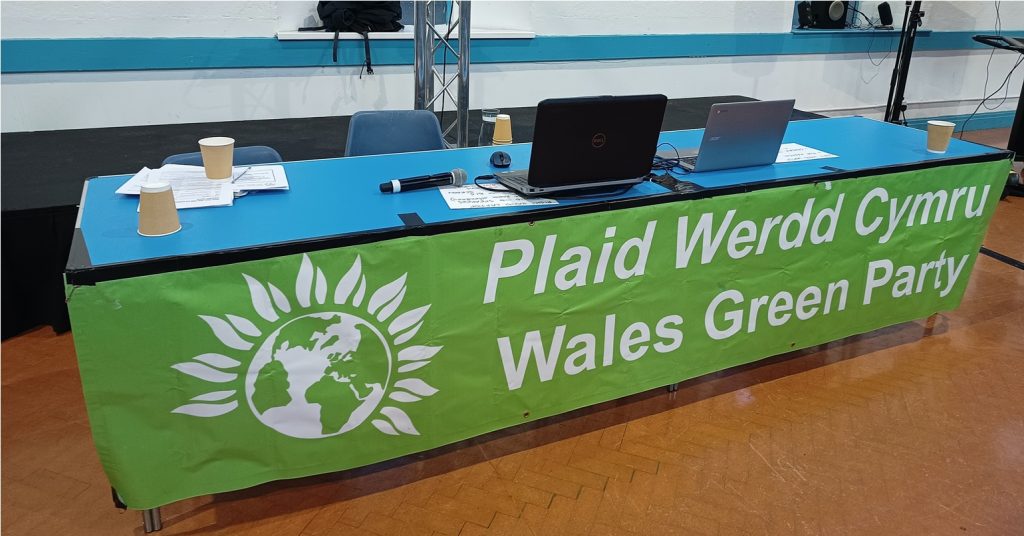Campaigners demand 9 insurance managing agents rule out insuring the East African Crude Oil Pipeline

Climate campaigners targeted the offices of 9 insurance managing agents on August 30. Activists marched between the firms’ offices setting up fake oil spills outside in their efforts to get companies to rule out insuring the East African Crude Oil Pipeline (EACOP).
Wearing facemasks of insurance company bosses, campaigners set up their fake oil spills and made speeches made at Chubb, Travelers Syndicate Management Limited, Lancashire Syndicates Limited, Chaucer Syndicates, Talbot Underwriting, Liberty Managing Agency, Hiscox Syndicates, AIG (American International Group) and Tokio Marine Kiln Syndicates.
Campaigners say that EACOP is a project which will have severe impacts on ecosystems, communities and water supplies across Uganda and Tanzania, destroying both lives and livelihoods, displacing thousands of people from their land.
Lucy Porter from Coal Action Network said: “We already see climate chaos happening now, and the last thing the world needs is another 34 million tons of CO2 emissions every year. End fossil fuels – don’t insure EACOP”
Campaigners from Stop EACOP delivered letters to each of the offices to insist the agents Don’t Insure EACOP. They promise to return if their demands are not met.
Nkurunziza, a Ugandan student said: “We stand in solidarity.. these companies must rule out insuring EACOP, why stand on the wrong side of history? Why do you want to destroy the planet? Can you respect the millions of Ugandans? This is our demand, drop this project now.
“Can you listen to our cries? Can you listen to our tears?”
EACOP is currently under construction and is intended to transport crude oil between Uganda and the Port of Tanga in Tanzania. If it is completed, it would be the longest heated crude oil pipeline in the world.
Campaigners have repeatedly criticised the project for its role in the acceleration of climate change, and for its impact on local ecosystems and people who live in the area. Nearly a third of the pipeline will run through the basin of Africa’s largest lake – Lake Victoria – which more than 40 million people depend on for water and food production.
PS. We hope you enjoyed this article. Bright Green has got big plans for the future to publish many more articles like this. You can help make that happen. Please donate to Bright Green now.




Leave a Reply